
Refrigerators can easily become one of the most cluttered areas of the home. The excuse is often "out of sight, out of mind," but even though you can hide away the mess, it’s good for the overall functionality of your kitchen for the fridge to stay in tip-top shape.
"The holidays are all about connecting over great food, festive drinks, and lively conversation with friends and family. If you want to make sure your holiday spread tastes its best, proper food storage and knowing how to organize a refrigerator is key. Some foods are happiest outside the refrigerator, where their flavor and texture stay party-ready," says Ayten Nadeau, founder of i-TEN Designs.
Here are seven common items to keep out of the refrigerator and why, along with their ideal storage spots for a stress-free season.
1. Tomatoes
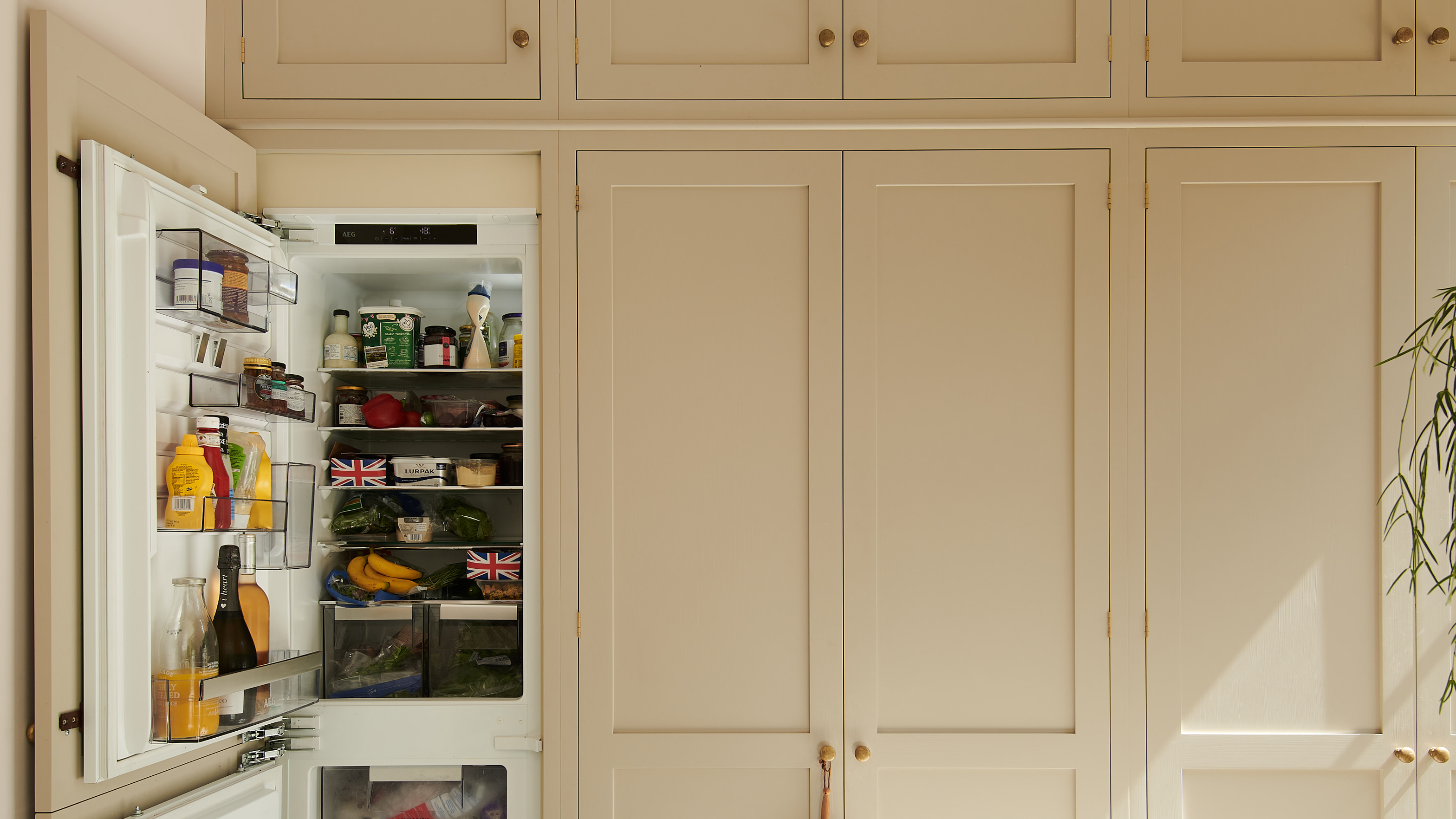
There are a few things people who have the most organized fridges never do and that includes placing fruits and vegetables that don't belong there.
You may think storing tomatoes in the refrigerator will increase their shelf life. However, this is, in fact, incorrect. "Avoid putting tomatoes in the fridge because the cold air stops tomatoes from ripening, making them dull and mealy. Instead, let them bask on the countertop, out of direct sunlight, to keep that burst of flavor intact," explains Ayten.
Other fruit and vegetable types, such as leafy greens, should be kept in the fridge to reduce the risk of pathogen growth.
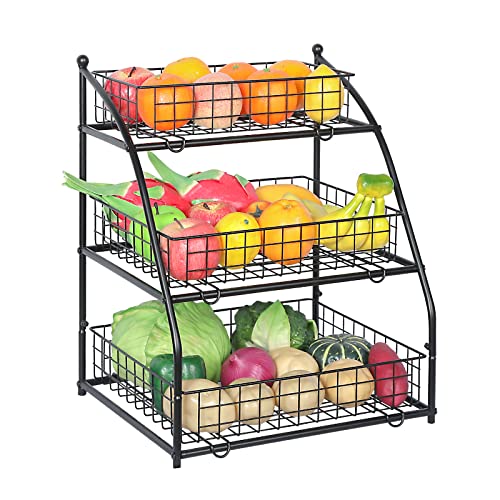
Price: $27.19
Was: $33.99
Size: 3 Tier: 14.5"L 12.2"W 18.9"H
This three-tiered wire rack is ideal for storing many different fruits and vegetables. Store it in your pantry or display it on your countertop.
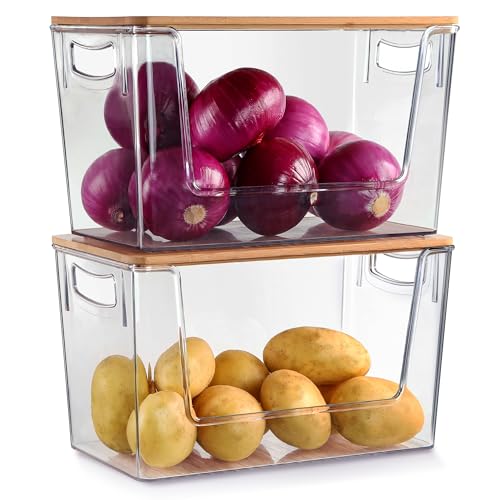
Price: $29.99
Size: 12"L x 7"W x 7"H
It's a good idea to store your food in transparent boxes so it's easy for you to see what's what. This set of two clear baskets are sleek and stackable.
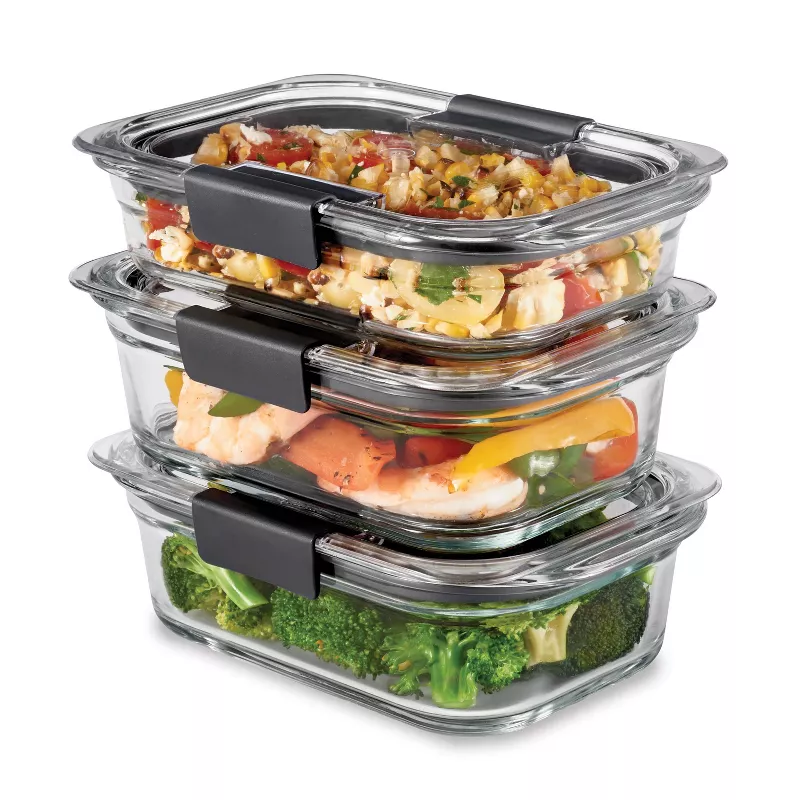
Price: $33.59
Was: $41.99
Size: Piece 1: 5.35"W x 1.93"H, Quantity 1, Capacity 16 Ounces Piece 2: 5.35"W x 2.62"H, Quantity 2, Capacity 25.6 Ounces
If you want to ensure your food is totally sealed, grab a set of these glass food storage containers.
2. Garlic
If you're looking to make your home smell good, you might want to avoid putting garlic into the regenerator as this would do the exact opposite.
"Garlic should never go in the fridge. It should be stored in a cool, dry place as the fridge creates moisture, which makes it sprout," says Ben Soreff from H2H Organizing.
A pantry or a large cupboard is ideal and the perfect temperature for storing garlic is between 60-65°F. Using more sustainable pantry storage solutions such as a mesh bag or a wire basket is much better for your garlic (and the environment) than a plastic bag.
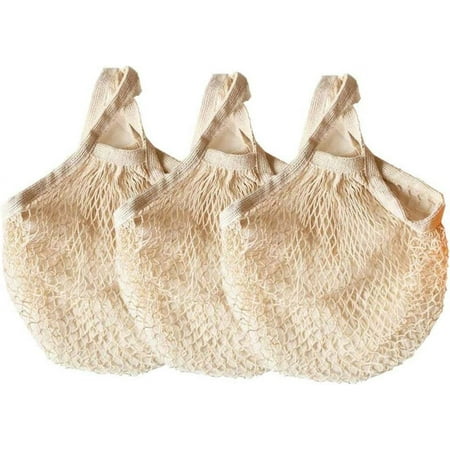
Price: $9.95
Size: approx.14"L x 13.38"W and the handle length is approx.4.5" high
These cotton mesh bags will hang elegantly in a pantry or on a kitchen wall. They are effortlessly stylish and will let your garlic breathe!
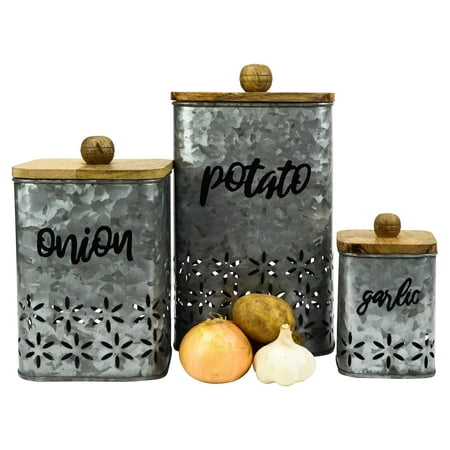
Price from: $60.39
Size: Potato: 11” x 7.25” Onion: 8” x 6.25” Garlic: 5” x 4.25”
Labeled containers are perfect for determining what to store where. This set of three storage canisters makes it easy to store your onion, garlic, and potatoes.
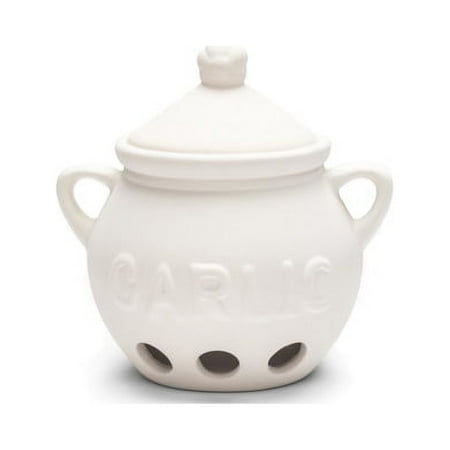
Price from: $27.83
Size: 5.75" X 5.25" X 5.5"
This adorable garlic storage jar will look great displayed on your kitchen worktop or open shelves. It's ceramic so has a luxe feeling to it.
3. Potatoes

Putting potatoes in the fridge will use up vital storage space. Not only this but you shouldn’t store potatoes in the fridge because the cold temperature causes the starches to turn into sugar, making them taste sweeter once they are cooked. Conversely, other root vegetables such as carrots should be kept in the fridge to lessen their oxygen absorption.
"Lots of places make attractive storage containers for potatoes that can sit on the counter without compromising on the look of your kitchen," says Ben. See some of our favorites below.
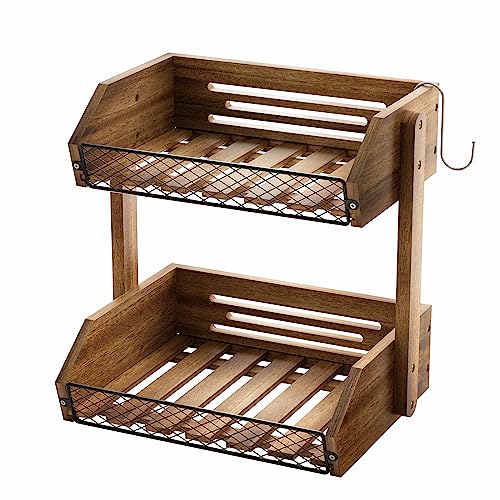
Price: $26.99
Was: $28.99
Size: 9.25"D x 11.88"W x 13.1"H
Store your potatoes in this rustic wooden rack. There are wire barriers at the end of each shelf to make sure your potatoes are secure.
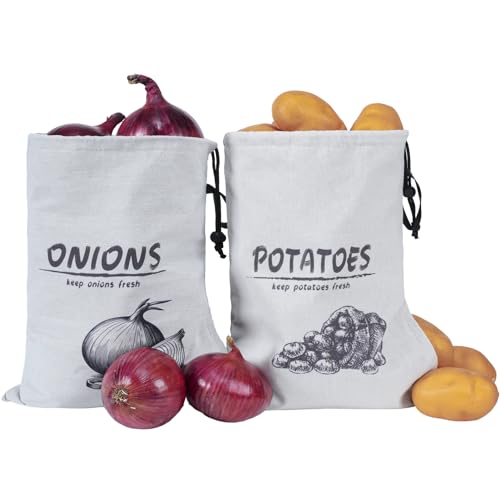
Price: $7.49
Was: $9.99
Size: 11.5"W x 15.5"H
A classic potato bag will definitely do the trick. Try to choose a design like this one that is fairly simple and will suit the rest of your kitchen decor.
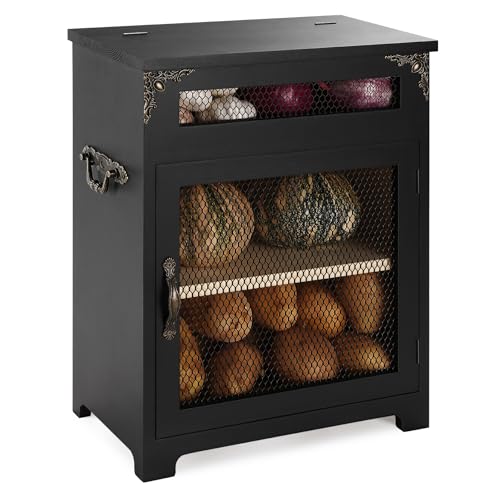
Price: $43.99
Size: 12.2"W x 6.5"D x 16"H
How lovely is this wooden potato and onion storage bin? It's available in a black or raw wooden finish and no assembly is required.
4. Onions
Similar to garlic and potatoes, onions prefer to be stored in a cool dry place in proper kitchen storage. "Onions go soft and moldy in the fridge’s humidity, and their strong aroma can spread to other foods. You should store them in a well-ventilated area, such as a pantry, in a wire basket or mesh bag. Keep onions separate from potatoes to avoid mutual spoilage," says Ayten.
Use the bottom drawer of your fridge for vegetables that do need to be stored in cooler temperatures such as cucumber, celery and broccoli.
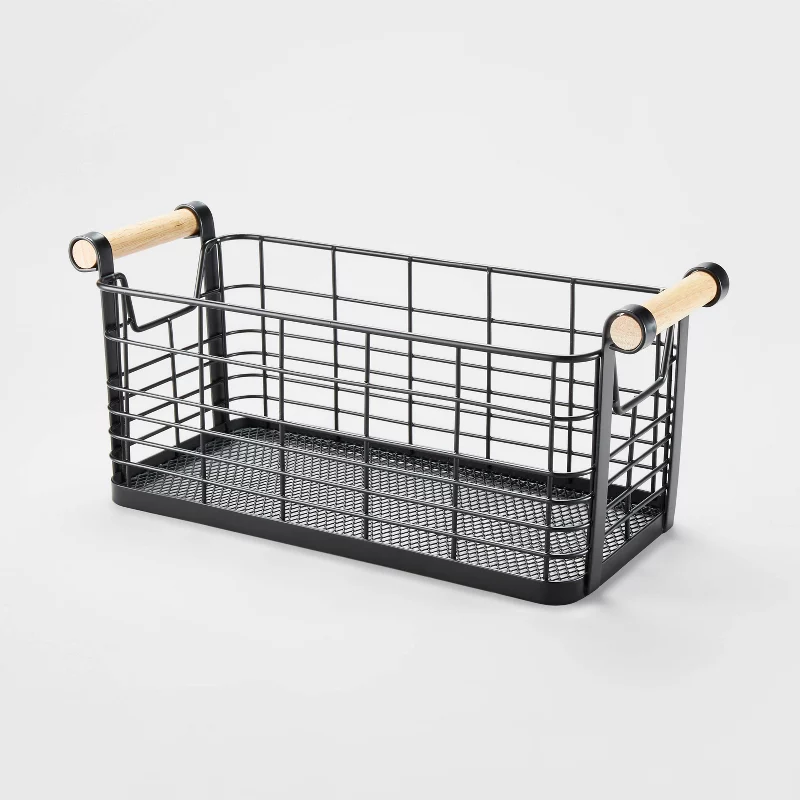
Price: $10.00
Size: 6"H x 13.75"W x 6"D
This fab wire basket has wooden handles, which makes it easy to transport your onions around the kitchen.
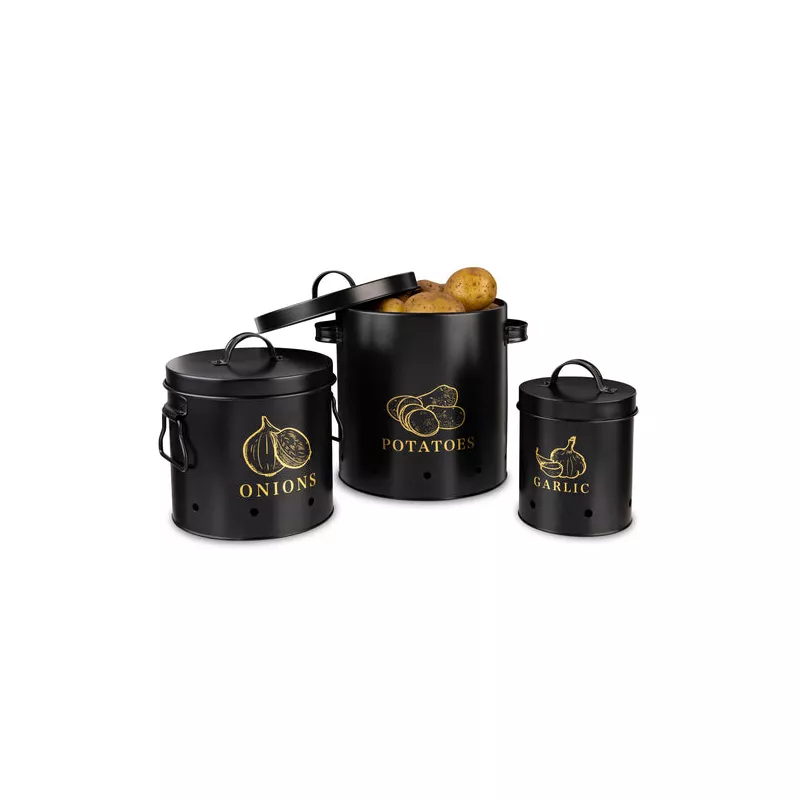
Price: $32.95
Size: 9.33"H x 7.76"W x 7.76"D
Each of these farmhouse style canisters has a tight fitting lid, with handles on the top and sides. This set comes with a 5L potato can, 2L onion can and 1L garlic can.
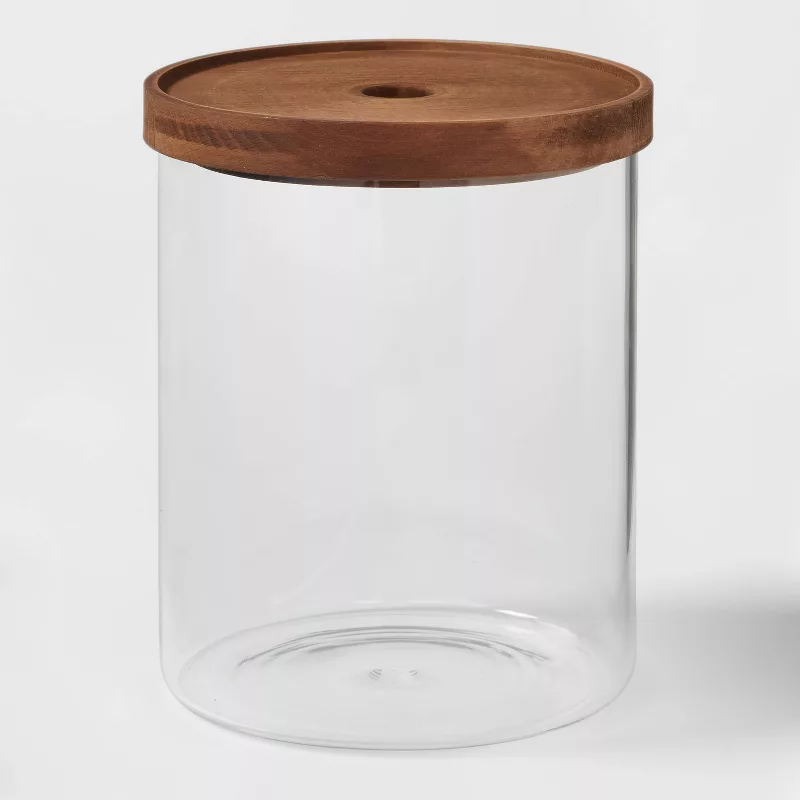
Price: $17
Size: 7.87"H x 6.8"W x 6.8"D
You can store lots of different things in this glass canister, including onions. Choose a size that's right for you and your kitchen.
5. Bread

"Storing bread in the refrigerator is an absolute refrigerator crime! The fridge dries bread out, robbing it off its soft, fluffy texture. Where to store it instead? The kitchen worktop or in a breadbox for short-term use. For longer storage, freeze slices in a resealable bag to preserve freshness, says Ayten.
If you have a pre-made sandwich that contains fresh fillings then yes, you need to keep this in the refrigerator but ideally no longer than 12 hours.
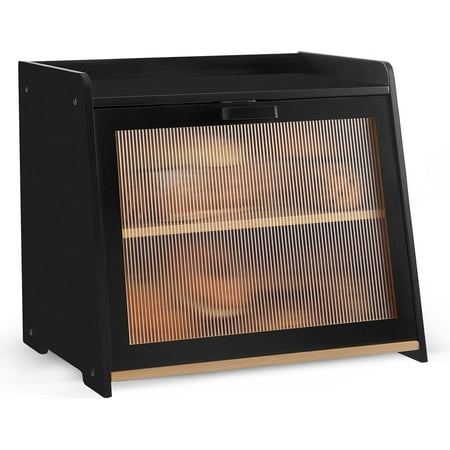
Price: $45.99
Size: 15.8" x 9.7" x 13.2"
This contemporary bread box is available in black or bamboo finish. Its reeded glass design is perfect for any modern kitchen.
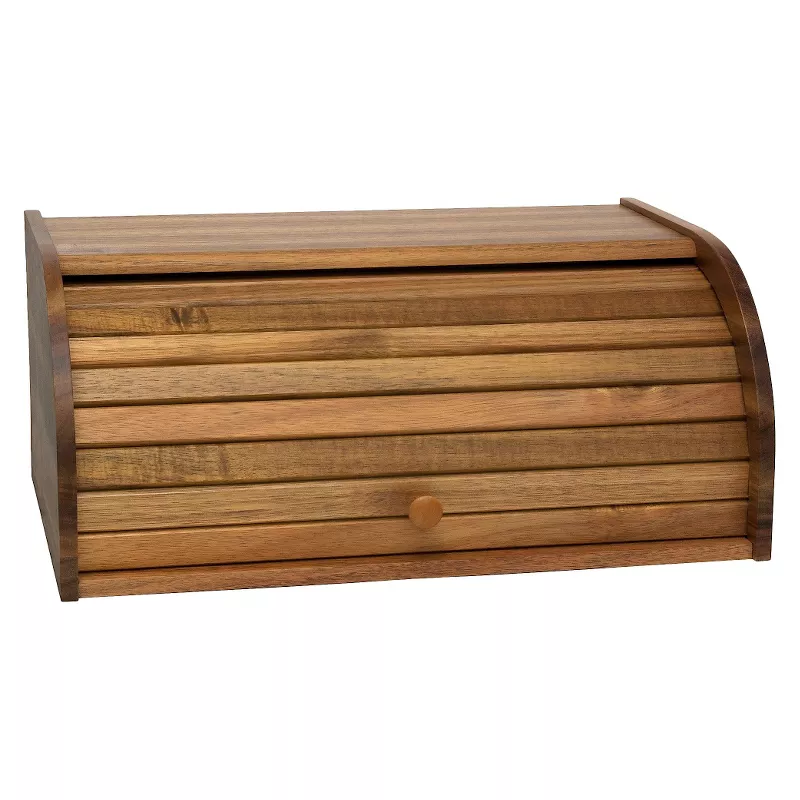
Price: $49.99
Size: 7.0"H x 16.0"W x 10.62"D
This bread box is constructed from Acacia wood, which makes it very strong and durable. It will keep bread fresh for as long as possible.
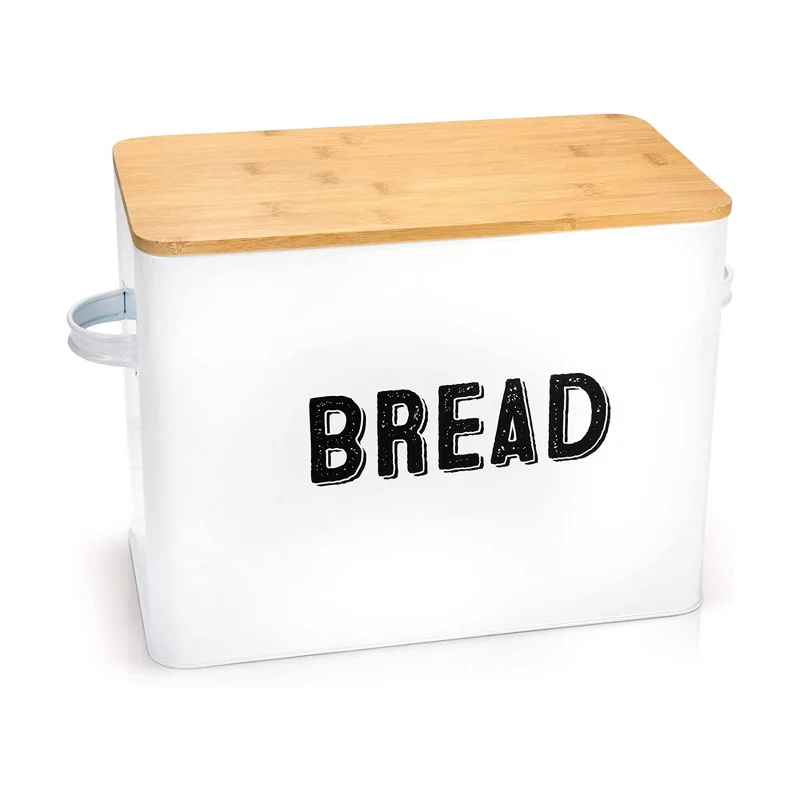
Price: $26.99
Was: $46.99
Size: 10"H x 15.5"W x 7"D
This bread box can store up to two loaves securely and it's wooden lid is airtight, making sure no moisture can get in.
6. Honey
The last thing you want is for your honey to crystalize and go hard, which makes it impossible to pour. "Honey is naturally shelf-stable, so keep it in your pantry or any dry, room-temperature spot. Ensure it’s tightly sealed to avoid moisture that can alter its texture," explains Ayten. Consider trying out one of the below items to store your honey in.
Other spreads such as jam (especially if they're homemade) should be kept in the refrigerator to avoid them from spoiling.
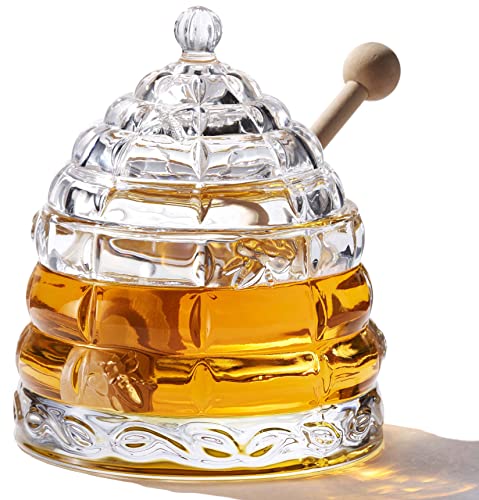
Price: $23.95
Size: 4.5"L x 4.5"W x 5.5"H
This traditional style pot is the perfect vessel for storing your honey in. It's made out of durable glass and comes with two wooden dippers for serving.
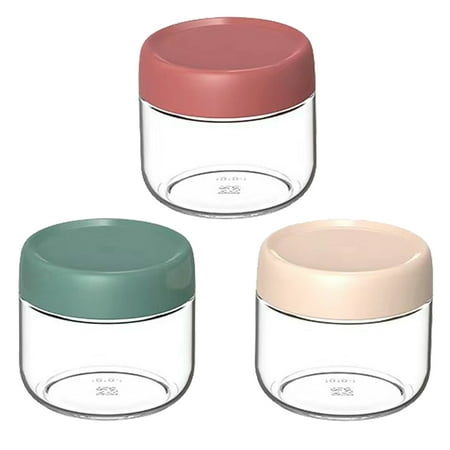
Price: $11.89
Size: 3.5’’ x 1.5’’
Decant your honey into these adorable little glass jars. They are made from a food-grade material with extra thick glass and a durabe plastic screw lid.
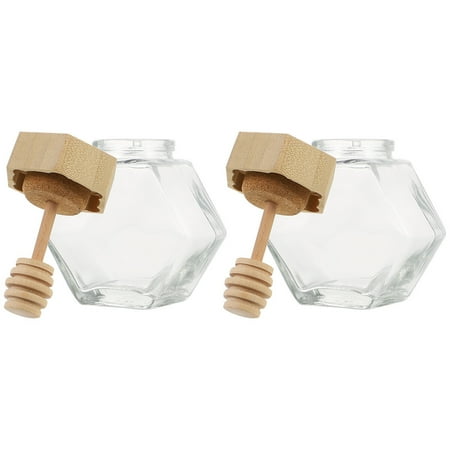
Price: $10.99
Was: $14.07
Size: 3.15" x 2.87" x 1.57"
If you're a fan of honey and always have an abundant supply, then pick up this set of two honey jars. They come with a traditional dipper, which is perfect for drizzling on top of your favorite snack.
7. Oil

Avoid storing oil in your refrigerator as many of them solidify in the cold and end up turning cloudy and chunky. Ayten insists that they should be "kept away in a cool, dark cupboard, away from the stove, since heat and light can cause oils to spoil and go rancid."
Shara Kay from SK Organizing insists that even though oil doesn’t belong in the fridge, "condiments like catsup or maple syrup are supposed to be refrigerated after opening, and we often find them in clients' pantries."

Price: $26.99
Was: $44.95
Size: 1.07"W x 3.39"H
These stylish oil dispensers can be bought in either a set of two or a set of four and make cooking or dressing salads ten times more efficient.
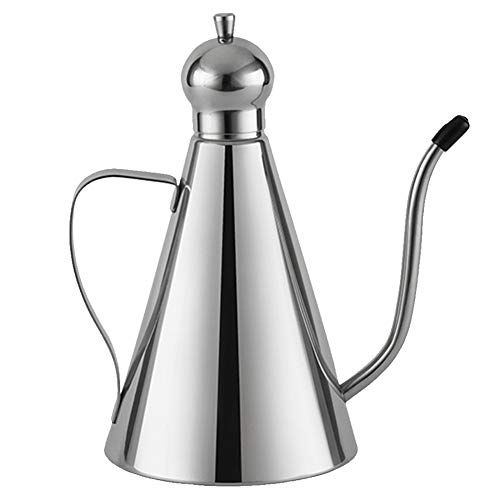
Price: $24.99
Size: 13.5 x 23.5 cm
Display this oil dispenser next to your cooking area or on an open shelf. It's made of stainless steel to protect the oil from the light. It also ensures that the oil will keep fresh.
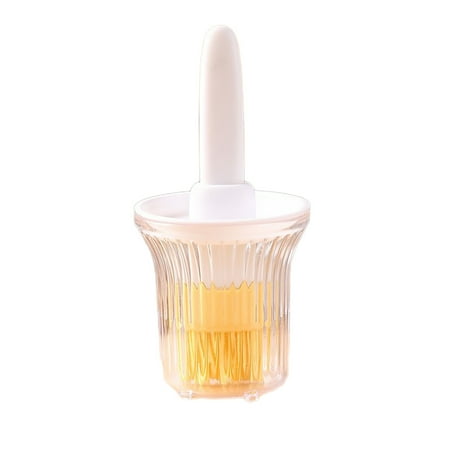
Price: $1.69
Size: 6.30" x 2.20" x 2.20"
The functionality of this oil dispenser is amazing! Not only does it store your oil but it has a handy silicone brush attached to the lid, perfect for when you're cooking or baking.







